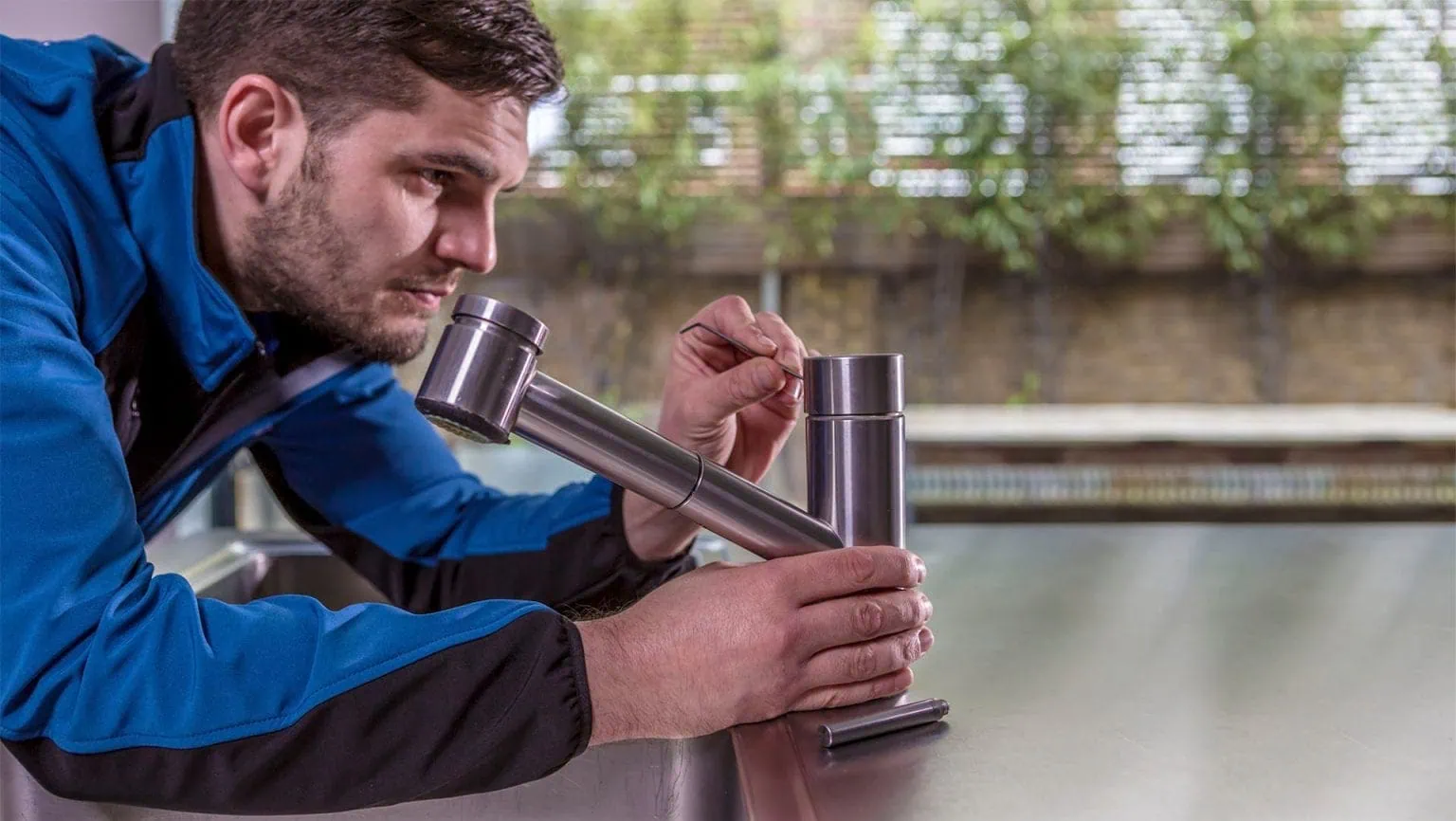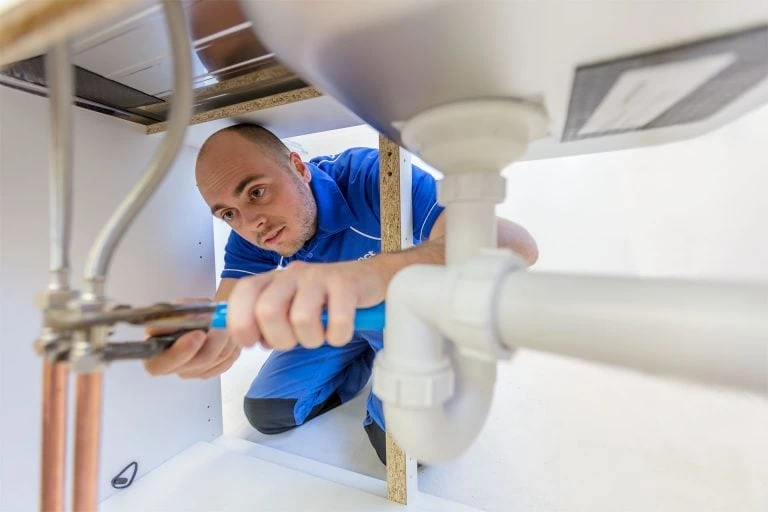What causes banging noises in plumbing pipework?
With the exception of the gentle sound of water rushing through pipes, plumbing pipework shouldn’t make much noise. The problem can occur on either cold water or central heating pipework. If you hear a mechanical or banging noise whenever you open or close a tap or valve don’t ignore it.

What causes plumbing pipes to make a banging noise?
If you hear a vibrating, banging or pounding noise when taps are turned on or off it’s usually due to hydraulic shock in your plumbing pipework. Hydraulic shock is more commonly known as “water hammer”.
The banging noise you hear is the result of vibrations in pipes. The vibrations are caused by a surge of pressure in the plumbing system when a tap or valve is opened. Sometimes, water hammer can be created when a vacuum is formed behind water. If water continues to flow quickly after a valve behind it (upstream) has been closed, this could create a vacuum. The faster the flow of water through the pipes, the greater the shockwave and vibrations that are created.
Modern plumbing taps and valves aren’t designed to stop or start a full flow of water instantly. One of the common reasons for hydraulic shock to develop over time is wear on a tap or valve. The seating inside the valve begins to jump which causes water pressure to increase rapidly.
It’s not always the case that taps or valves closest to the noise are the ones causing the problem. For example, it’s not uncommon for a faulty kitchen tap downstairs to be the cause of hydraulic shock upstairs.

Book a qualified plumber
- 1-hour priority attendance
- On call 24/7 for any plumbing emergency
- Half-hour rates from £42.75 + VAT
- £10 off when you book online
Do I need to get noisy pipes fixed?
Hydraulic shock can be created in either metal or plastic pipework. It’s usually more obvious in metal pipework due to the capability of metal to transmit sound more effectively than plastic. Anyone who suspects they have a hydraulic shock issue should contact a qualified plumber or heating engineer as soon as possible. They’ll be able to resolve the issue.
The rapid pressure increase, and resulting vibrations, stresses the pipework, joints and fixings. In severe cases of hydraulic shock pipes can rupture and cause water damage, or possibly flooding, inside your property. If the banging noise in your pipes has increased over time it means that vibrations have increased. An increase in vibrations will also increased the likelihood of rupture.
What can be done to stop the banging noise?
An experienced plumber or heating engineer will be able to diagnose the cause. They’ll make subsequent changes to the plumbing system to stop the problem. Steps can be taken to slow the flow of water where the pressure build-up is occurring. Fitting new valves that close slowly and/or a hydraulic shock arrestor will fix the problem. Other steps such as checking plumbing pipework is fixed securely in place will help to prevent movement in the future.
Finally, it’s worth mentioning that some combi boilers seem to be affected more by water hammer than others. When this happens, fine cracks can appear within the manifold which will result in leaks.
Areas we cover

Our plumbers are available throughout Greater London and the Home Counties. Our service area includes Berkshire, Buckinghamshire, Essex, Hertfordshire, Kent, and Surrey. Use our postcode checker to see instantly if we cover your area.
If you need a plumber outside of this coverage area, we may still be able to help. Our team will check availability and see if one can be scheduled for your location.
Call or submit a callback request, and a member of our team will be in touch with you.
More about our plumbing services

Our plumbers can be booked for a wide range of tasks. Read more about the range of services we provide here: –
- Leaking taps, valves & pipes; whether it a dripping tap, a leaking toilet or a damaged water supply pipe, we can quickly schedule a plumber
- Emergency plumbers on call; we have experienced plumbers on call 24/7 to respond to any type of plumbing emergency anywhere in London
- Shower installations & repairs; if you’d like a shower replaced, or even repaired, our plumbers are happy sharing their knowledge and advice
- Bathroom refurbishment projects; we can allocate an experienced Project Manager to oversee every part of your bathroom refurbishment project
- Pre-purchase plumbing surveys; before you buy a property, be sure the plumbing is sound. Our visual inspection report will highlight any issues
Was this article helpful?
Think we could improve this article? Please let us know
What others have said
John 14 Sep 2022
Why does it also occurs when our toilet is flushed? No taps involved.
Chris at Aspect 10 Oct 2022
It may be one of several issues, such as a problem with your toilet's cistern valve. Only a plumber will be able to say for sure.
Ralph Hunt 19 Apr 2023
I found this advice very informative and very helpful